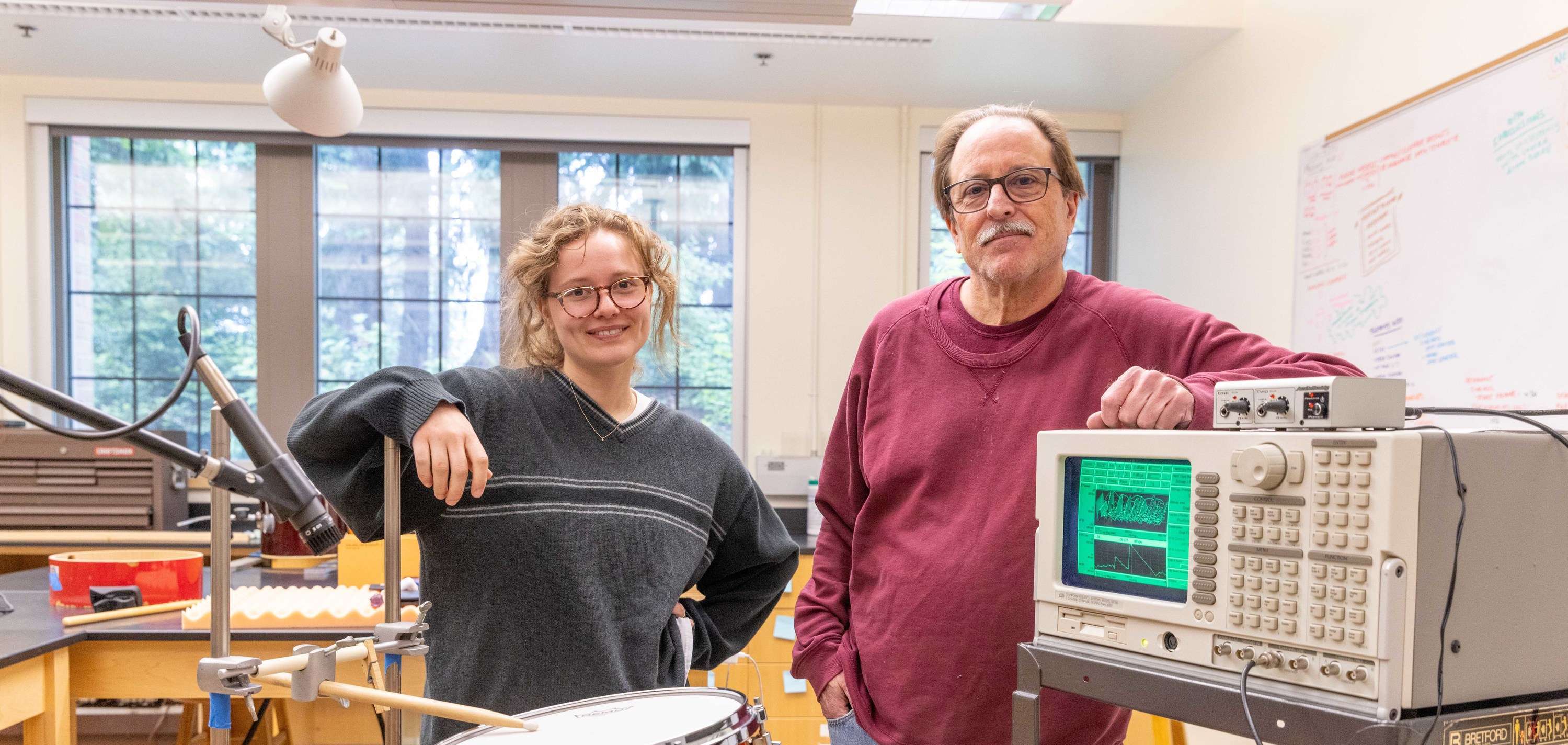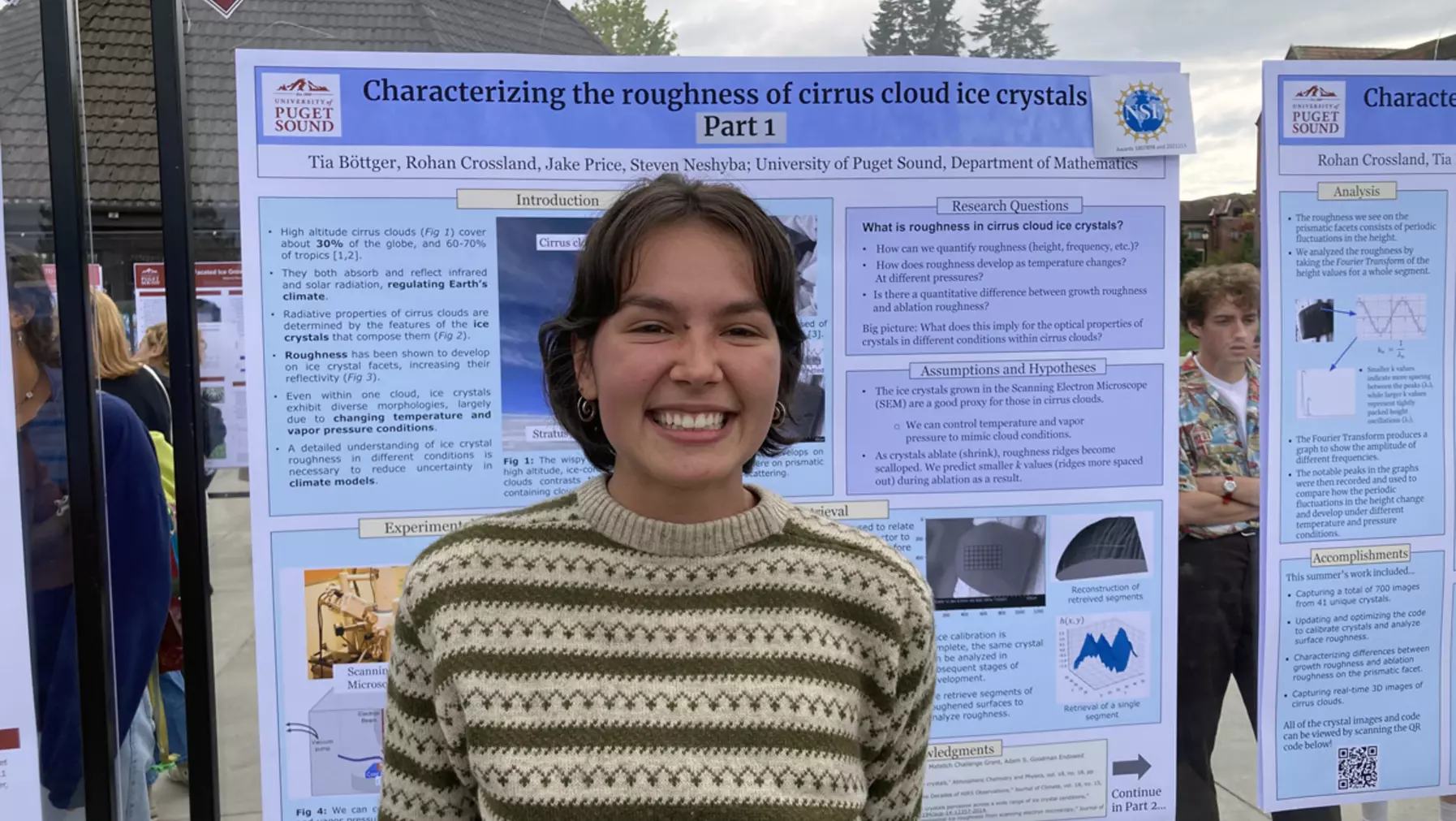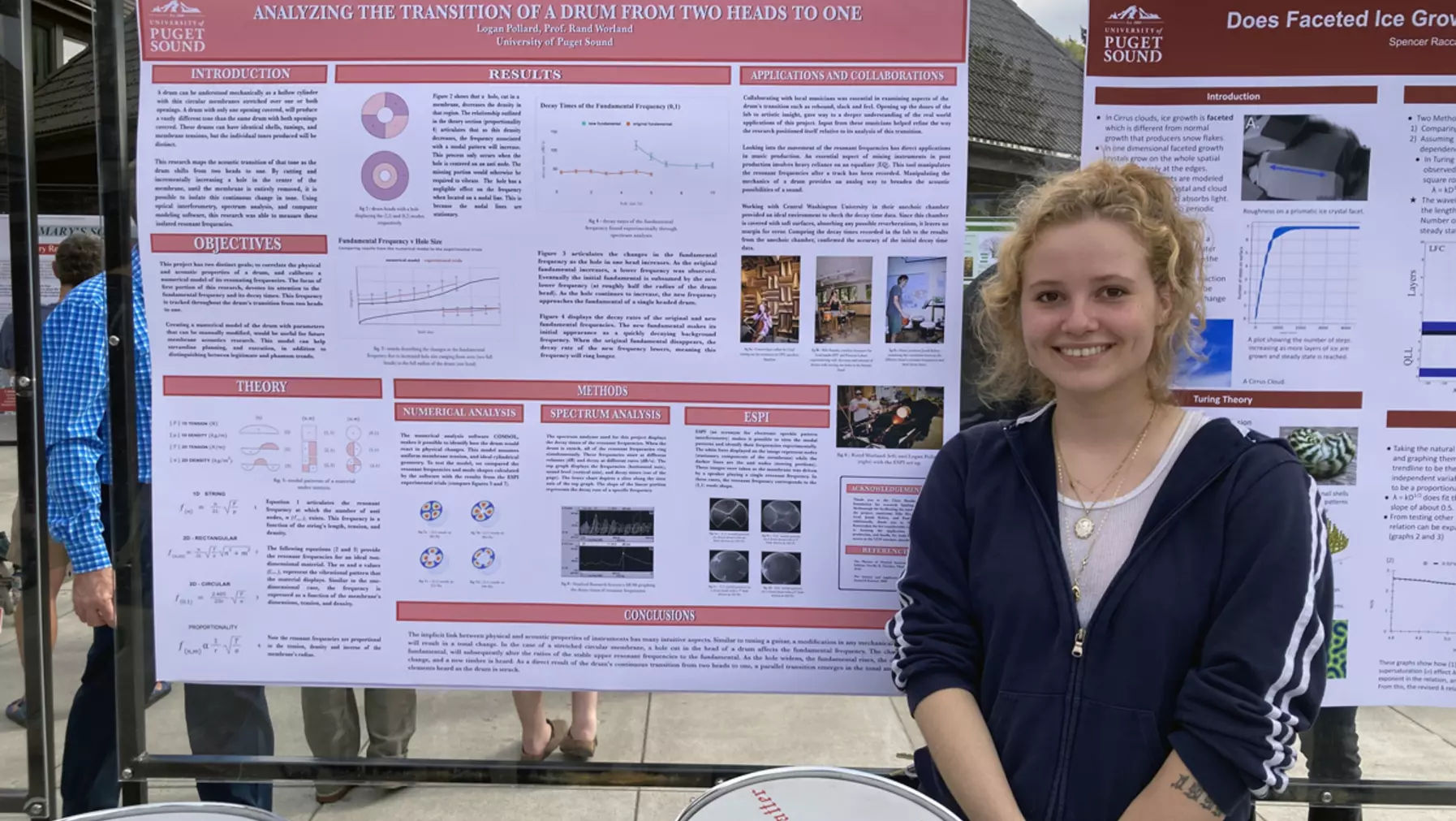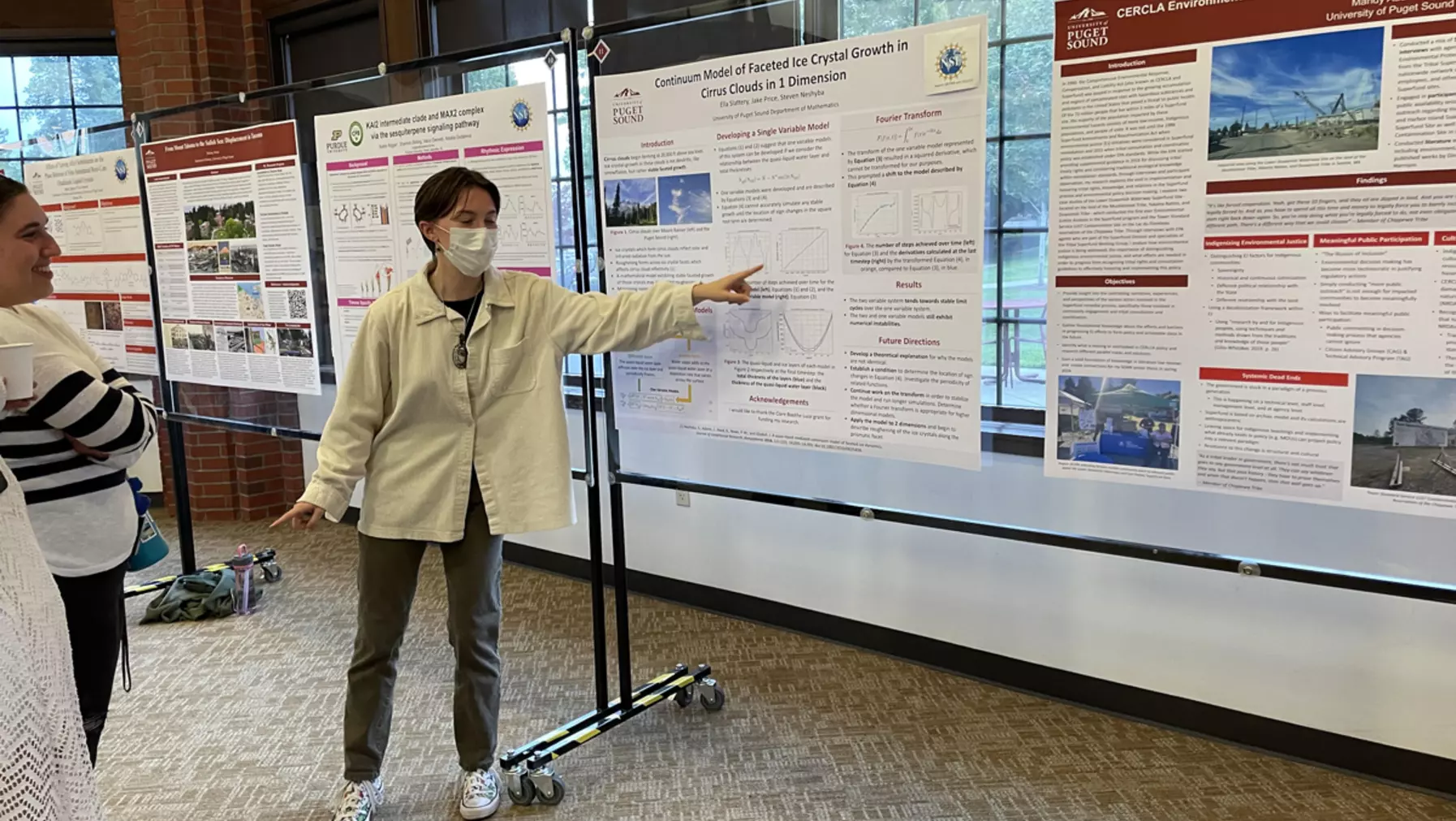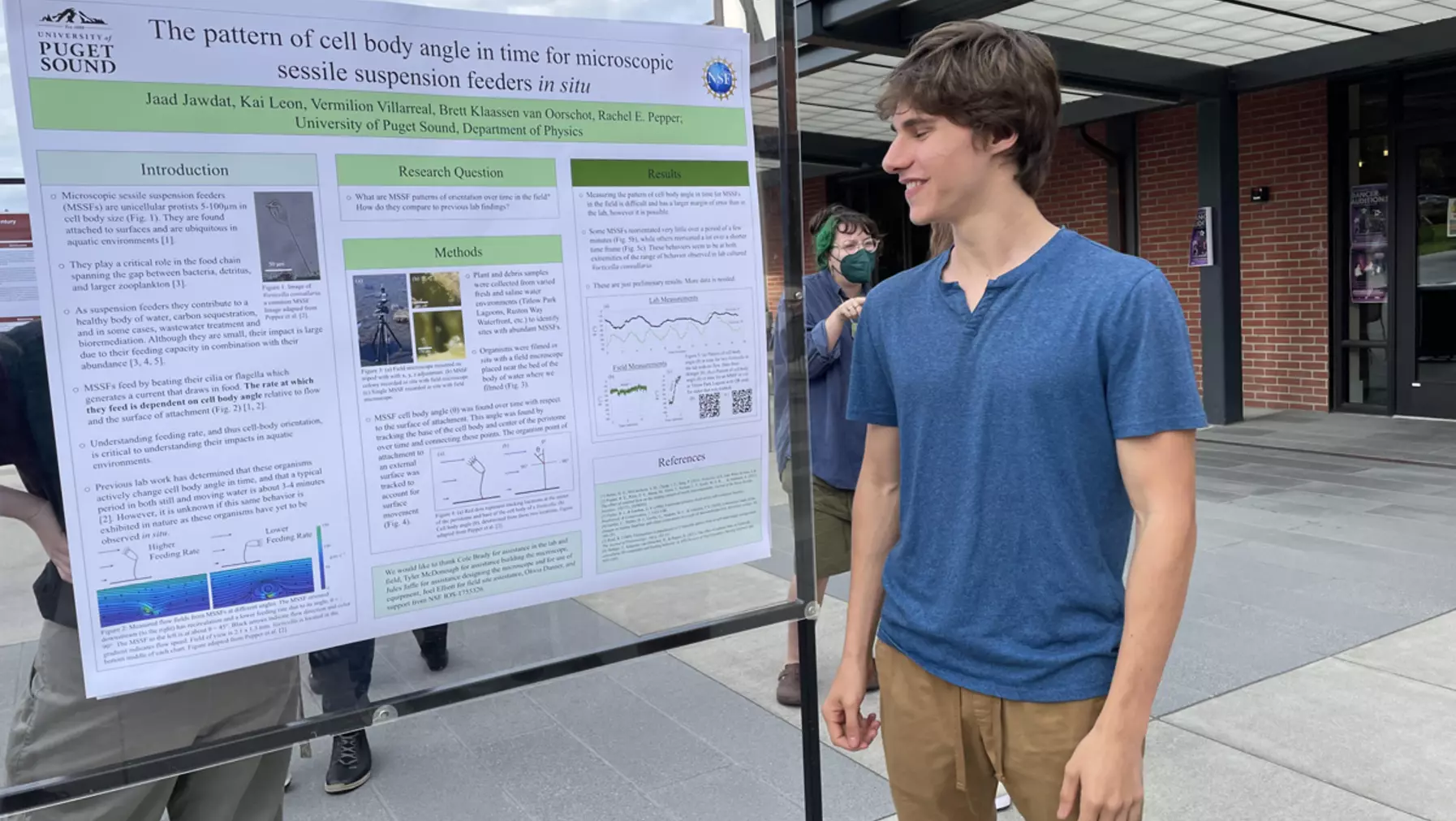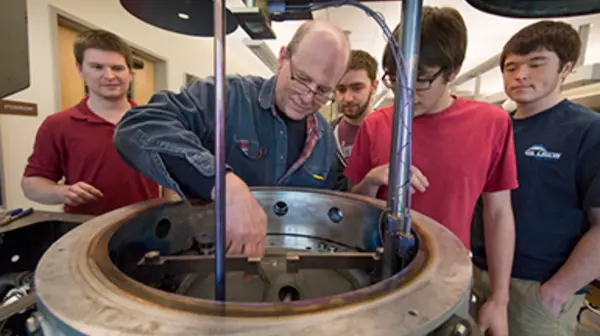How is the material world structured, from subatomic particles to galaxies? How do objects act under the influence of forces, and what are the origins of those forces? As a discipline, physics uses mathematical techniques to study matter and energy. Physics majors learn to tackle complex problems by collecting and analyzing quantitative data, applying mathematical reasoning to model the physical world, expressing their scientific thought processes orally and in writing, and using technology to explore and understand physical phenomena.
The Physics Department at Puget Sound embodies scientific inquiry and discovery on the part of both students and faculty. Students can work directly with faculty members who are engaged in research in fields such as particle physics, musical acoustics, optical materials science, and biophysics.
